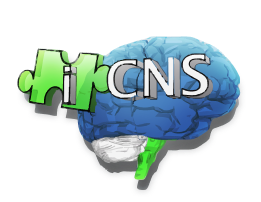Concussion by the Numbers: This is Just Scary
- Katherine Novian

- Oct 13, 2015
- 2 min read
Updated: Mar 3, 2020
There has been a lot of talk recently about violence and athletes. 2 boys attack a referee at their high school football game, and then a Catholic school student shoved a referee at his own game, professional football players are becoming enraged and beating their wives or children. Should they be disciplined for their actions? How harshly should they be punished? Can they be held responsible, or do we blame their coaches? And above all: Why in the world would our athletes be showing this type of behavior?
I have one more question that I feel needs to be asked, but hasn't been: Have these kids had TBI's or concussions? IF SO, have they been treated?

Between 5-18 year olds, 2.4 million sports related injuries occur annually, of which about 135,000 involve a concussion. Football accounts for more than 60% of these concussions for boys. For the girls, it's soccer. So how likely is it that 1 in every 5.5 games, or about 20% of highschool football players, are going to sustain a brain injury in any given season!

We often think of "head injuries" only when the skull is broken or when the person loses consciousness, but that's just not the case. Less than 10% of sports related concussions result in a loss of consiousness! Any time you "see stars," you have sustained a TBI, and once it has suffered from one concussion it is 4-6 times more likely to suffer a second concussion. Often, players will return to the field before they have completely recovered from a concussion. Some of the common symptoms of traumatic brain injury, especially CTE (which is a progressive degenerative disease of the brain, found in athletes and others, resulting from repeated head trauma) include impulsivity, explosivity, and agression (Ann McKee, MD. Boston University). All three of these symptoms are reflected in the behavior of the players.
I know there is a culture of agression and impulsivity involved in many football programs, an attitude of "No Pain No Gain," but ultimately, we need to watch out for injuries, like TBI and concussion, because they impact the individual's ability to make logically, emotionally, and morally sound decisions. We need to impress upon our student athletes the need for care, and we, as adults, need to continue to watch over them and when TBI occurs, we need to make sure they don't go back on the field until they have recovered fully.
Do you think you or your child have had a concussion or TBI? Are you dealing with the after effects because of sports, car wrecks, or accidents? Give us a call! (210)415-2542




Comments